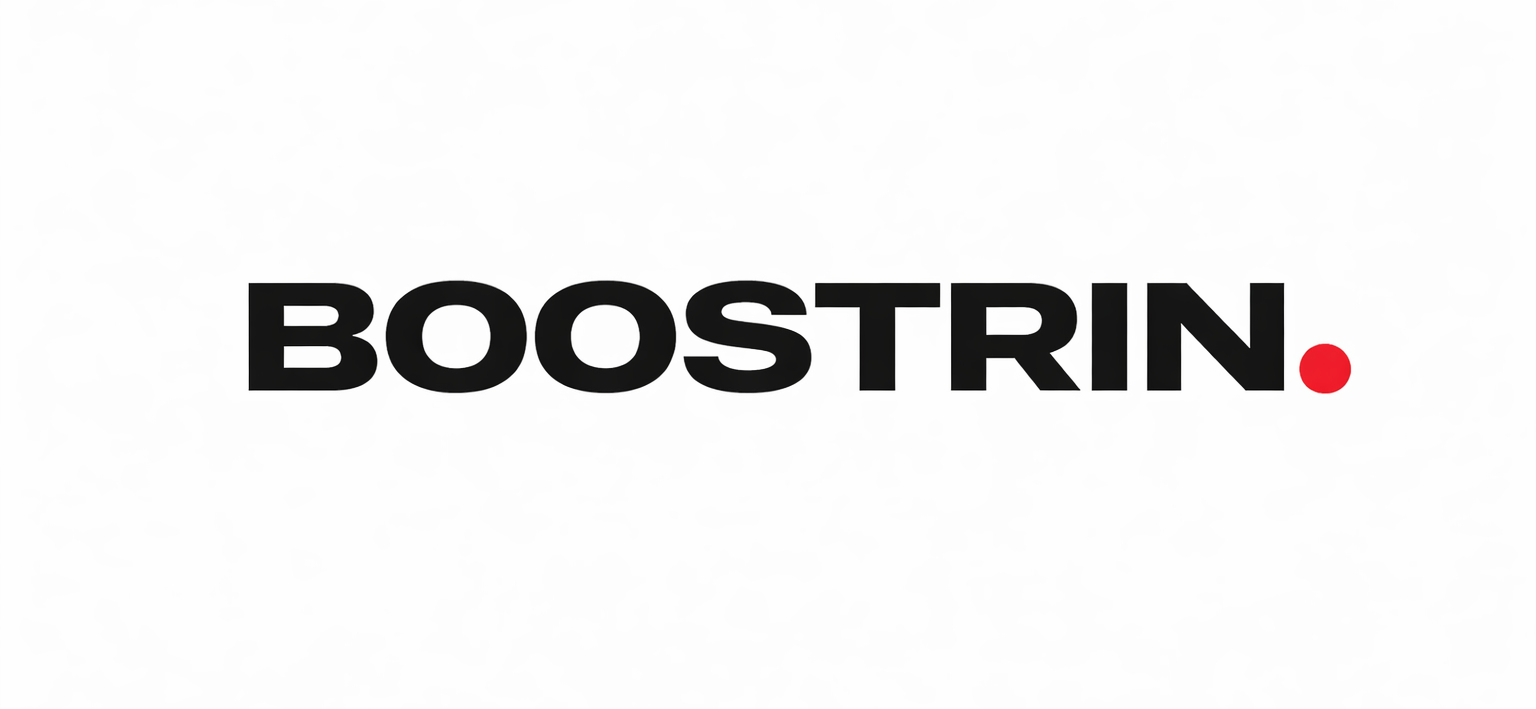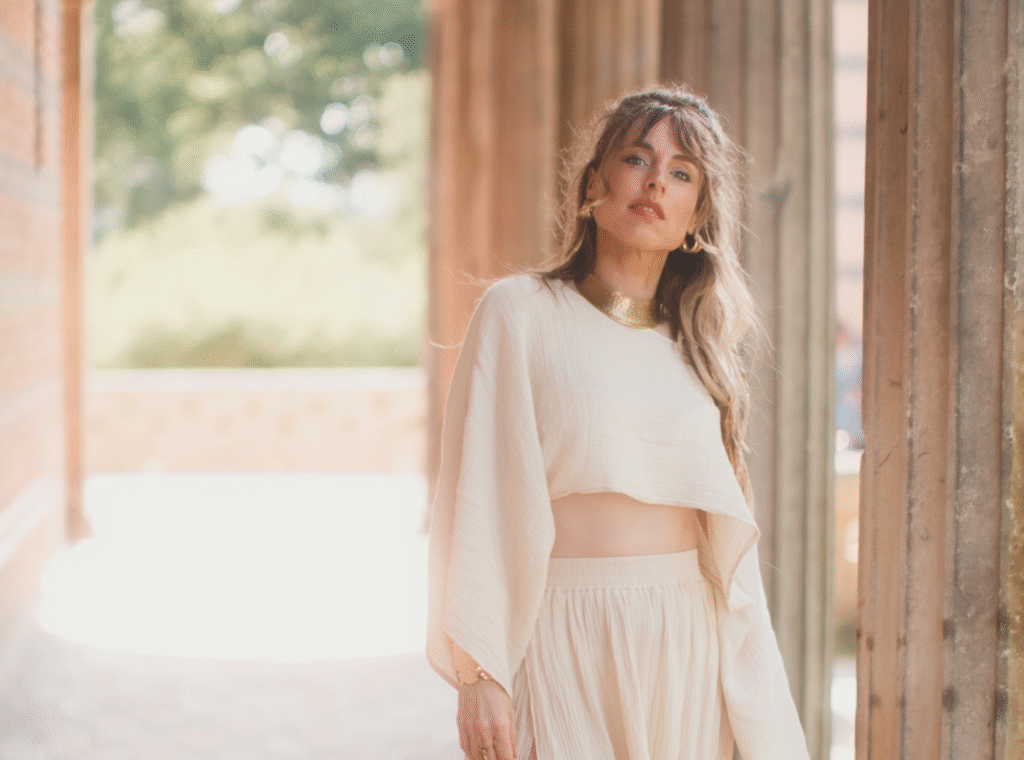With a voice that soars and a sound that transcends borders, Berlin-based artist Marie Chain is redefining what it means to make soulful music in a modern, global world. Blending soul, Afrobeats, blues, gospel, and the energy of Berlin’s underground scene, her signature style, known as Global Soul, is as emotionally rich as it is rhythmically infectious.
Her new single “Holy Water“ isn’t just a track to move your feet. It’s a call for freedom, healing, and deeper connection. From the first beat, you’re pulled into a sonic experience that radiates warmth and power. Marie’s voice leads with both strength and vulnerability, while the groove carries a message that stays with you long after the song ends. It’s the kind of music that not only makes you dance, but makes you think.
Marie Chain is more than a singer. She’s a creative force. As a composer, performer, DJ, and founder of several cultural festivals and community projects, she has dedicated her art to building bridges and bringing people together. Whether she’s performing on boats gliding through Berlin’s canals or curating stages across Europe, her passion for unity and expression shines through every note.
In this exclusive interview, Marie opens up about the personal inspiration behind “Holy Water,” her genre-bending journey, and why she believes that music should always carry a purpose. Meet the artist who’s using rhythm and soul to change the conversation—one powerful song at a time.

Your new single “Holy Water” blends Soul, Afrobeats, Blues, and Gospel into what you call “Global Soul.” How did you arrive at this signature sound?
Well, I grew up with Classical and Blues music—it’s basically imprinted into my musical DNA. I learned classical piano and composition frfom the age of 5, so for me it’s natural to dive into different genres and blend them together. My parents listened to a lot of Blues music, it was that kind of sound of freedom from a land far away, back then behind the wall in the GDR (Germany), where they grew up. My musical hero journey in short? From Beethoven to Backstreet Boys to Ray Charles to Etta James to Michael Bublé to Amy Winehouse to Mark Ronson… and then, frankly: the log drum, that´s where I´m right now.
“Holy Water” is a Soul song with purpose. It represents unity and cultural exchange. Why Afrobeats? Because I was DJing last year in Angola, and when I wandered through the streets of Luanda, the soulful bluesy kind of melodies and the log drum and that bouncy beat just hit me. It was like, “Yes, the Blues reinvented.”
“Holy Water” was inspired by a hike in the Bavarian Alps and later influenced by your time in Angola. How do your travels shape your songwriting and production process?
I write most of my songs while traveling. When I’m truly present and open, the music and lyrics just flow—usually within minutes. I see myself more as a channel than the actual creator. Every place has its own sound, its own melodies, a cultural identity that’s just floating in the space, waiting to be received. I pick that up and create music.
Take that hike in the Bavarian Alps—suddenly, I channeled this message that felt almost religious. Which fits Catholic Bavaria, sure, but the song itself is actually a liberation from systems like that. I used terms like “holy water” and “sins” and gave them an entirely new, liberating meaning—wrapped in an Afrobeats Blues groove. That’s genius, that’s the source.
I usually record the melody and lyrics on my phone when they come through. The chords and arrangement? Already playing in my head. Then I either record in a studio I find on the road or in my home studio—or with friends in Berlin.
You’re known for building community through music and festivals. How do you see the intersection between music and social responsibility evolving?
Music is meant to inspire and unite people. But the music industry has built this idea of the superstar—someone to be admired, idolized, or fantasized about. That’s entertainment, sure, but I think it’s time we also recognize the responsibility music holds in shaping culture.
Right now, we need music that helps people reconnect—with themselves, with others, with healing. We’re living in chaotic times. This rat race mindset we learn in school creates so much friction. Why can’t we just be a bit more happy for each other? A bit more supportive?
That whole chase for money? It’s what kills the soul—both in music and in people. We need to unlearn those attachments. Music can guide us back to the heart—through concerts, festivals, ceremonies, workshops, even on social media. We don’t need more distraction. We need more attention.
Beyond being a singer and producer, you’re also a DJ and event organizer. How do you balance these roles while maintaining your artistic vision?
That’s a good question. Honestly, I still haven’t decided how I should “set myself up” sonically—just the singer and pianist? Just the DJ? But why choose? It’s all fun.
My live concerts are more refined and a sophisticated set up. Kind of a singer songwriter set up—playing my own music as a pianist and vocalist. My DJ sets, on the other hand, are party vibes or Ecstatic Dance journeys. As a DJ, I play my own House productions and curate other tracks very intentionally. I check every lyric—I want the message to be right. And of course: melody, groove, and vibe.
But sometimes, I merge both worlds. Like at my upcoming boat party on August 1st: I’ll perform, among other songs, Holy Water live as a musician, and later, DJ the Afrohouse remix version. It’s not just a show—it’s a whole experience.
Your upcoming boat release party for “Holy Water” is a unique concept. What inspired the idea, and what experience are you hoping to create for your audience?
I thought, what better way to launch Holy Water than on actual water? And that’s how the idea for the first edition of Holy Water Sessions came about—a series of boat events featuring live musicians and DJs, building community one floating party at a time.
On August 1st in Berlin, we’ll take a three-hour ride through the city. There’ll be live music, a DJ set, the Holy Water drink (yes, you can drink it!), and a chance to connect with amazing people. It’s a boat, so it’s exclusive—intimate.
I can already see it: we’re all singing Holy Water, embracing freedom, letting go… and as we pass by other boats, they’re just like, “Holy sh…water—what’s going on over there?!”
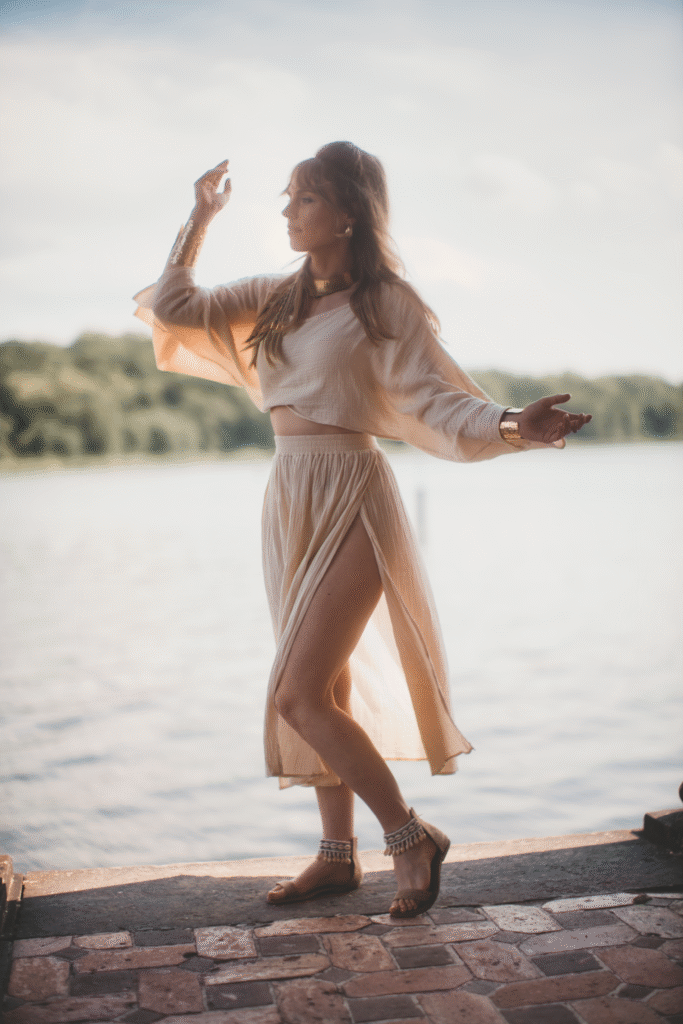
You’ve described yourself as a channel for music rather than just its creator. Can you elaborate on how that perspective guides your artistic process?
It’s like a sixth sense. I feel songs before I write them. I pick them up from somewhere—like a frequency I tune into. Of course, I can sit down and write music on command. But the best songs? They come when I’m inspired—visually, emotionally.
Beauty inspires me: nature, people, connection, community. That’s when the magic flows.
With over a million Spotify streams and a German Songwriting Award, how do you measure success as an artist today?
To me, success belongs to those who never gave up—even when it was hard, even when nobody listened. Success means staying true to your own vision, even when others don’t get it.
Do we need more copy-paste artists? No. We need authenticity. And creating something truly meaningful takes time. Masterpieces don’t happen overnight.
Me? I’m obsessed with evolving, getting better, and sharing my message with the world. That’s why we’re having this conversation right now. For me, success means living the dream, chasing it every day, reaching personal milestones, and leaving the world a bit better than I found it.
As founder of Freedom Festival Worldwide, you bring together music, healing, and sustainability. How does this mission reflect your values as an artist and individual?
Music is healing for me—simple as that. I am what I listen to. And what I consume shapes what I create.
That’s why I live vegan, I do yoga, I meditate. I read, I eat organic, I wear many secondhand clothes. I don’t need flashy things to be happy. Living consciously means caring—for myself, for others, for animals and nature.
And don’t even get me started on women’s empowerment—it’s urgent. Everyone talks about it, but not enough is happening. I want to be a woman who tears down old systems, challenges patriarchy through art and presence, and ultimately restores unity.
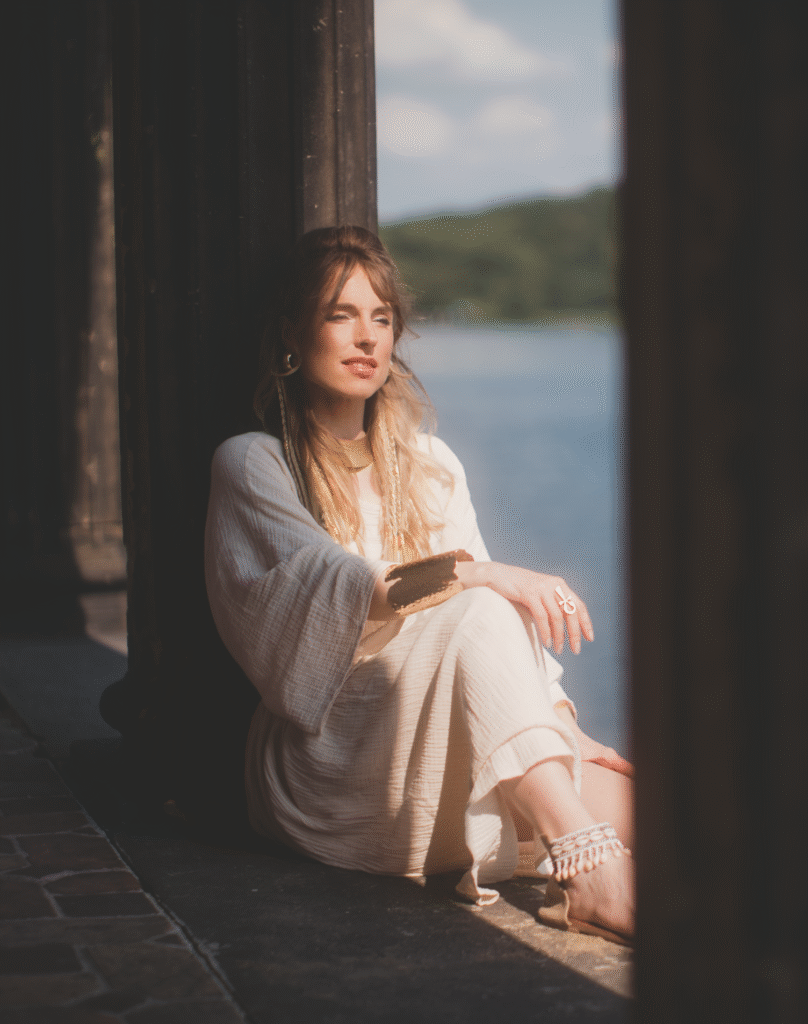
You’ve performed on global stages—from Indian Spirit in Germany, Berlin clubs, and Cairo Jazz Festival to events in Mexico. How does performing for international audiences influence your style?
It’s all about reading the audience. And feeling at home—wherever I go.
Different cultures react differently to my music. Social norms, energy levels—it all varies. But the wildest, most infectious crowds? So far, Mexico takes the crown. The vibe there is electric.
You’ve mentioned being inspired by nature and movement. How do you maintain creative flow and inspiration while managing a busy international schedule?
Oof, I’m still figuring that out! Yoga helps, time in nature. Traveling too—especially when I can let go and just be.
Sure, I travel a lot for gigs, but honestly? It never feels like work. It feels like adventure. I love what I do, so there’s always this beautiful sense of urgency.
That said, stepping away from social media or being constantly “on” really helps me reset. Breaks are just as important as creation. Without input, the output gets… meh. So balancing life and business? That’s every artist’s responsibility if they want to create something meaningful.
As a woman in the music industry—especially in production and DJing—have you faced unique challenges, and how have you navigated them?
Let’s just say: nothing gets handed to me. And I have to explain myself a lot.
I’ve learned to be unapologetically me. There’s a lot of talk from men in the industry—lots of empty promises. Some even do more harm than good. I had to learn, sometimes the hard way, how to spot the tricksters before getting burned.
That’s why I started doing everything myself—for my own peace of mind. As a woman in the arts, you need resilience. Fire. Focus. It’s not easy, but it’s also freeing. I’m fully independent and don’t owe anyone anything.
That said, I’m building a team now—because everything’s better together.
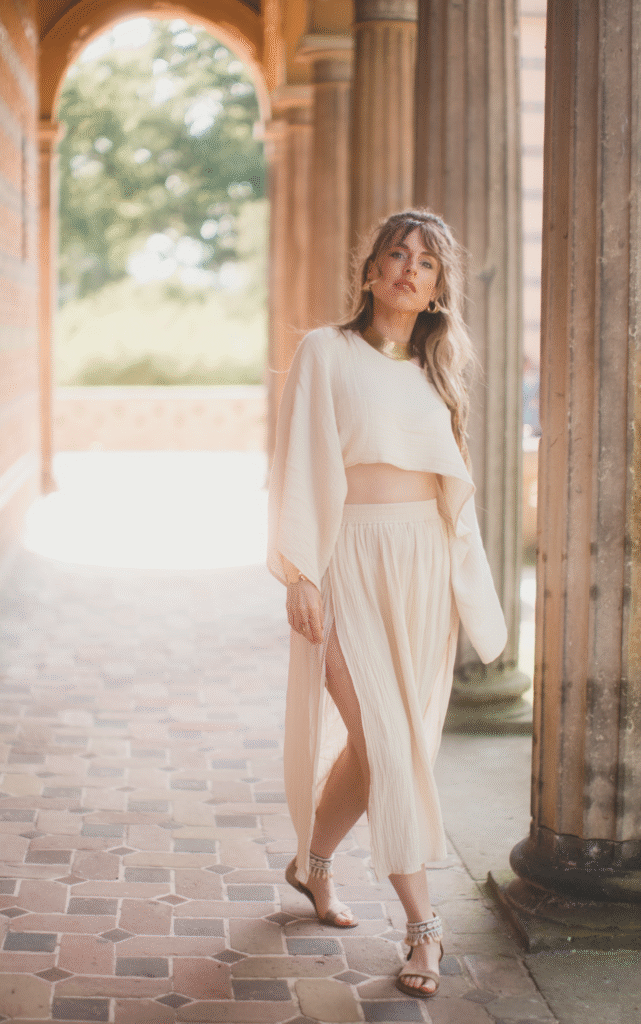
There’s speculation that “Holy Water” is the start of a larger project. Can you share any details about what’s next—possibly a full album?
Oh yes. First up is the Holy Water music video—it’s dropping in a few days and features dancers from Luanda, Angola, where the Afrobeats vibe of the track was born. Then there’s the Holy Water drink—obviously, we should be able to drink it too, right?
August 1st is the boat party in Berlin. After that? The Afrohouse remix of Holy Water drops. And many more songs will follow.
What do you think about an album called Holy Water? A global record—songs born in different corners of the world, uniting communities, blending cultures… doesn’t that sound like something worth creating?
I’d do that 😉
Connect with Marie Chain
Website
Facebook
Twitter
Instagram
YouTube
For music submission, click here
